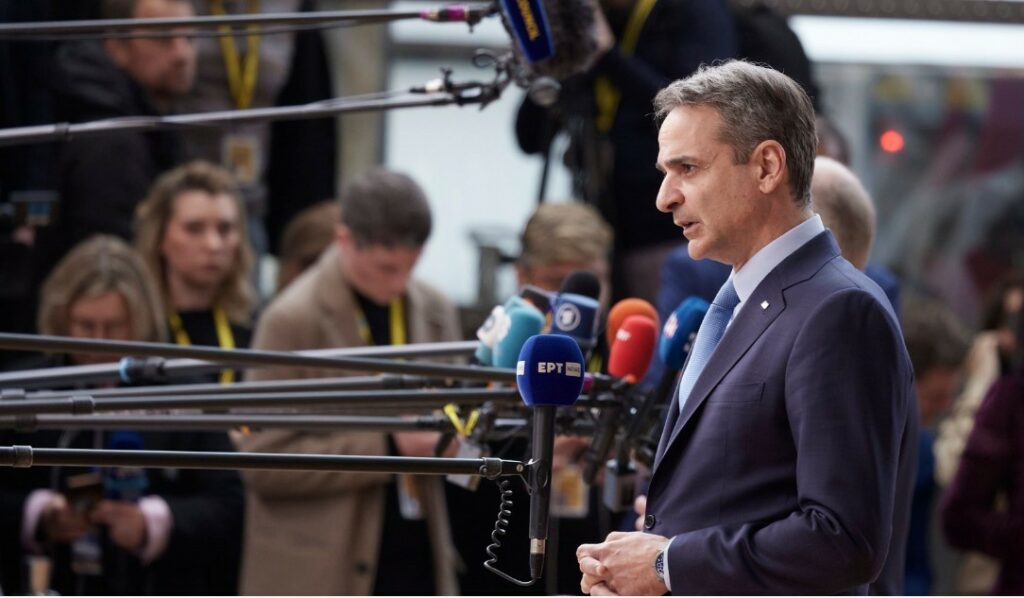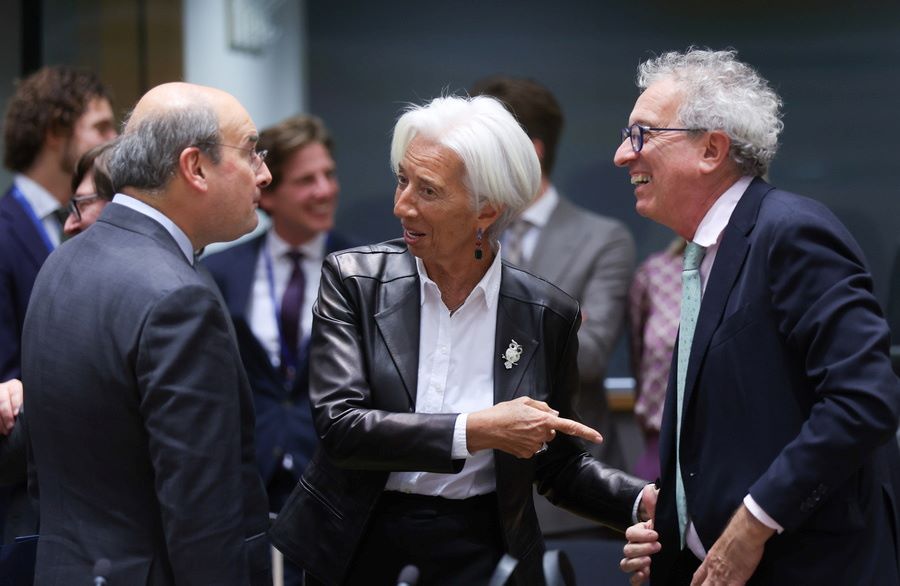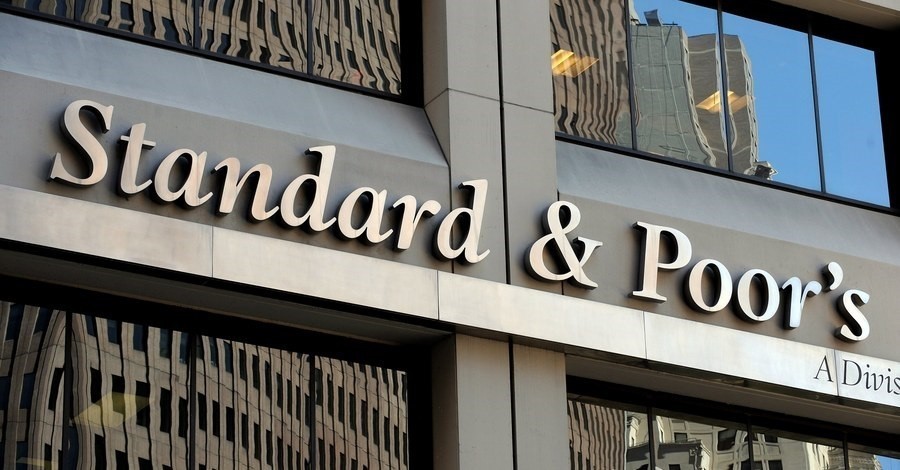
“I will equally protect Greece’s exit from crisis and the Prespes Agreement” says PM Alexis Tsipras
Greek Prime Minister Alexis Tsipras on Friday underlined his government’s determination to press ahead with a successful and permanent exit from the economic crisis, as well as a successful conclusion and ratification of the Prespes Agreement in the Greek Parliament.
Speaking during a press conference after the end of the EU leaders’ summit in Brussels, Tsipras said the Greek government was on a predetermined track with a clear direction:
“We have two major achievements: one concerns the exit from the crisis, which is completed through the consolidation of political stability over the coming period and we also have the Prespes Agreement, which enhances the country’s leadership role in the Balkans.”
“I am here determined to protect both these achievements with all my strength and not sacrifice one for the other. Especially when, in this instance, the protection of one is also a condition for the survival and protection of the other,” Tsipras said.
Tsipras, who has taken over the Greek foreign ministry following the resignation of Nikos Kotzias on Wednesday, said that Friday was a crucial day for the Agreement as there will be a first vote in Skopje on whether to launch procedures for the revision of the Constitution in FYROM. He said that the prospect of launching this procedure that changes FYROM’s constitutional name is the only road open to Greece’s northern neighbours if they want to join NATO and the EU, while he wished his FYROM counterpart Zoran Zaev good luck.
Under the deal signed by Greece and FYROM earlier this year, known as the Prespes Agreement, Greece’s northern neighbour must vote and implement changes to its constitution – including its name – before the agreement is ratified in the Greek parliament, which will activate an invitation to FYROM to join NATO and open up the path to EU accession.
UK-EU relationship at ‘critical point’
There is no doubt that the relationship between the United Kingdom and the rest of Europe is now at a critical point and literally resting on a knife’s edge, Tsipras said on Friday. He said that there was a deadlock over Brexit and expressed hope that this would be temporary because, as he said, it was also a political impasse for the United Kingdom.
He noted that Greece supports the efforts of the EU negotiator Michel Barnier and believes that there are ways to escape the impasse without slipping into dangerous paths. “If an extension of the transition period in order to find a mutually acceptable solution is broached, then Greece will support this request,” he said.
Regarding European integration, Tsipras noted that in the major and crucial issues facing the EU, the postponements and delaying tactics adopted by the EU were detrimental for Europe, the credibility of its political leaderships and its peoples.
“We need new and common institutions focused on economic stability and growth and not on austerity,” Tsipras said. He explained that this means new and strong institutions for risk-sharing and solidarity, not only for the banking system and the completion of banking union but also to address unemployment as a factor for systemic stability in the eurozone.
“The Spanish Prime Minister and I re-introduced the proposal for the establishment of a European fund against unemployment,” said Tsipras and explained that “if Europe continues to give priority to the numbers over the people that are behind them, then Europe will be unable to once again become attractive for its citizens and to stem the worrying rise of far-right and eurosceptic forces, nor will it be able to have a future.”
Tsipras also announced that Greece has been invited, for the first time, to participate in the Conference on Libya that will be held in Palermo on November 12.
Stronger cooperation with refugee and migrant transit and origin countries
Commenting on the European Council’s decisions concerning migration and the refugee crisis, Prime Minister Alexis Tsipras on Friday said that EU leaders had agreed to reinforce cooperation with transit and origin countries.
“We look to the EU-Arab summit that will take place in Egypt in early 2019,” he said.
He said this was an initiative that Greece, together with Cyprus, had steadfastly supported in recognition of Egypt’s crucial role in controlling refugee and migrant flows via North Africa.
“As a European pillar of peace and stability in the region, we have highlighted the need for cooperation with the countries of the region in the framework of a new, multiple-level European policy for the Mediterranean that concerns migration but also the economy, energy and security,” he added.
The Greek prime minister emphasised the “internal aspects” of the EU’s handling of the migration and refugee crisis, noting that the joint decision for a comprehensive approach to the phenomenon had to give equal important to all three dimensions of this crisis, in order to be serious.
“There must be progress on a comprehensive revision of the Common European Asylum System and a fair system of solidarity and sharing of responsibilities must be established, through the establishment of a permanent, efficient and easily activated mechanism for the redistribution of asylum seekers,” he said.
“The insistence of some member-states on not displaying a spirit of compromise divides Europe, while an insistence on eradicating illegal migration only and not, at the same time, opening legal routes for resettlement leads to an ineffective policy,” Tsipras added.
PM Tsipras: Protecting Greece’s sovereign rights an unwavering policy
At the press conference in Brussels, Tsipras said that Greece’s policy of protecting its sovereign rights is unwavering.
Tsipras was being asked about the ship “ Barbaros Hayreddin Pasa”, which Turkey said began seismic research on Thursday. The Greek Foreign Ministry had issued a statement this week saying the research is carried out on sections of the Greek continental shelf, which requires permission by Greece. Turkey has rebutted the statement.
Tsipras said that “ Greece always had and will have an unwavering foreign policy that prioritizes the protection of its sovereign rights.” On the Barbaros, he added that “ in this case we have taken all expected steps on diplomatic and defence level.”
The PM added that he did not wish to make a bigger issue of it, and he noted that Greek-Turkish relations are part of the EU-Turkish relations. He added that the EU made it clear to Turkey during March’s summit that the country needs to respect international law in the Aegean and the East Mediterranean.
He also said that he personally is at the forefront of the effort to build bridges with the neighboring country, and to keep talking. “ We support the restart of talks for a just and viable solution for the Cyprus issue,” he said.
Source: AMNA

